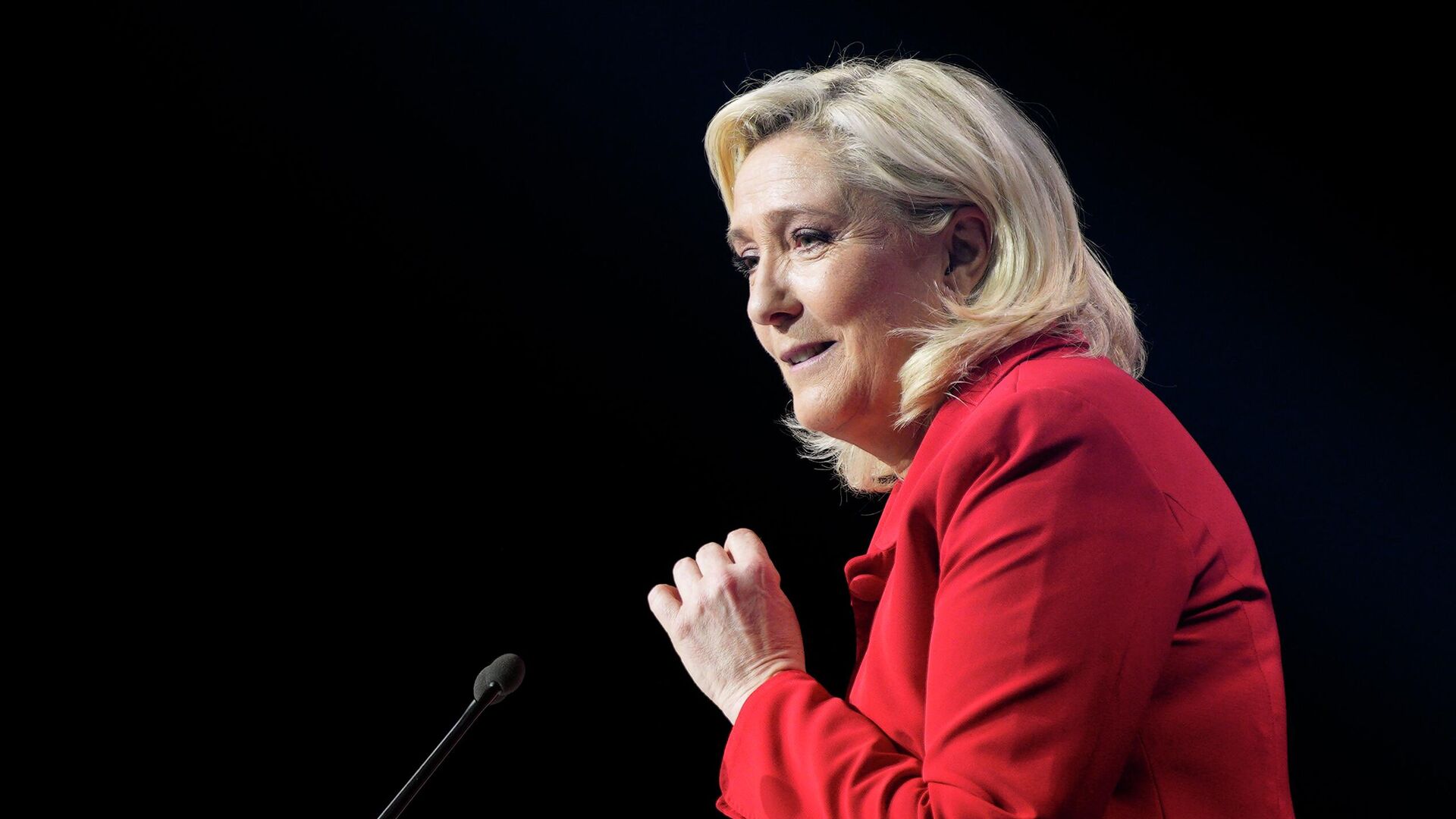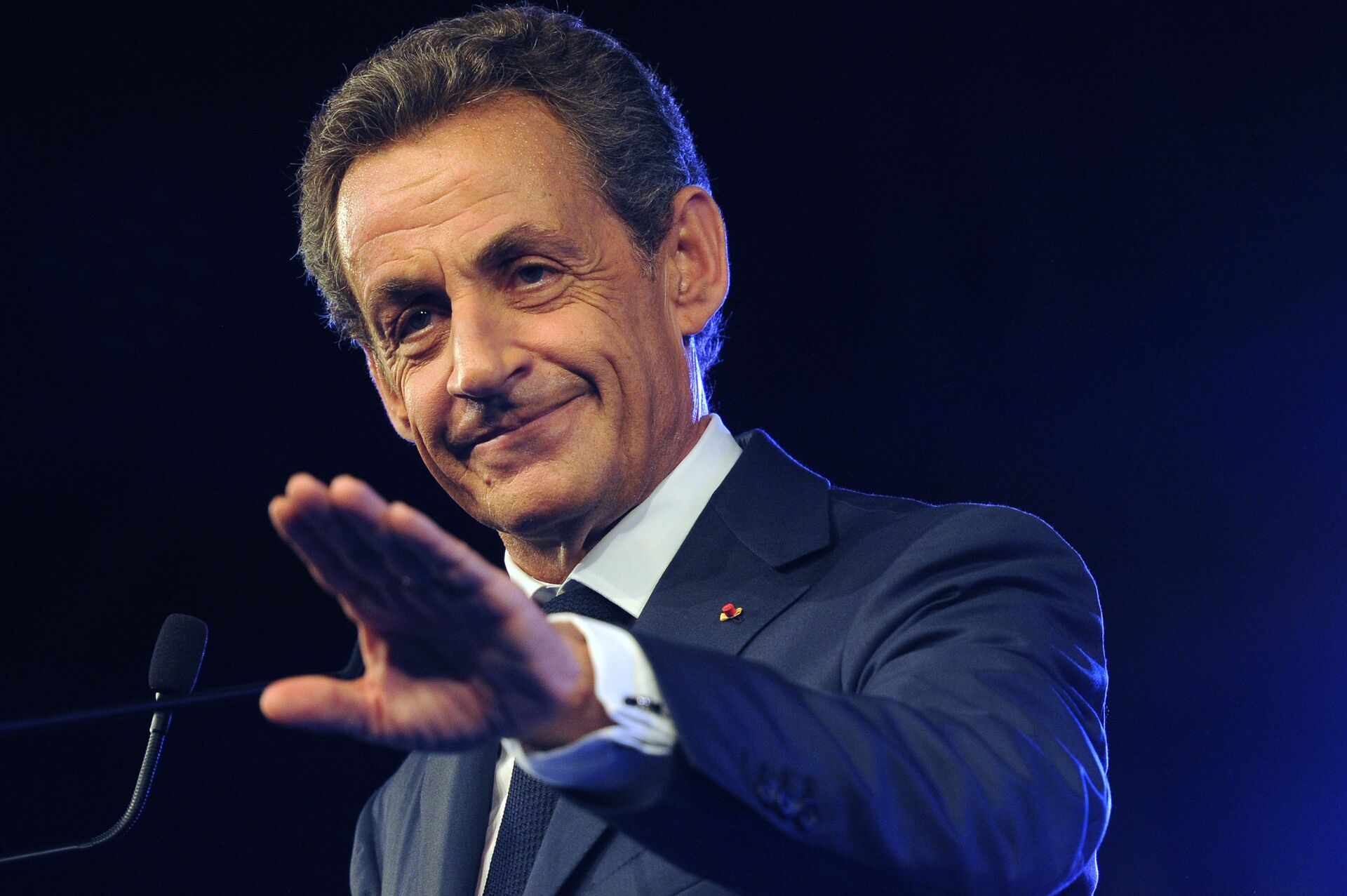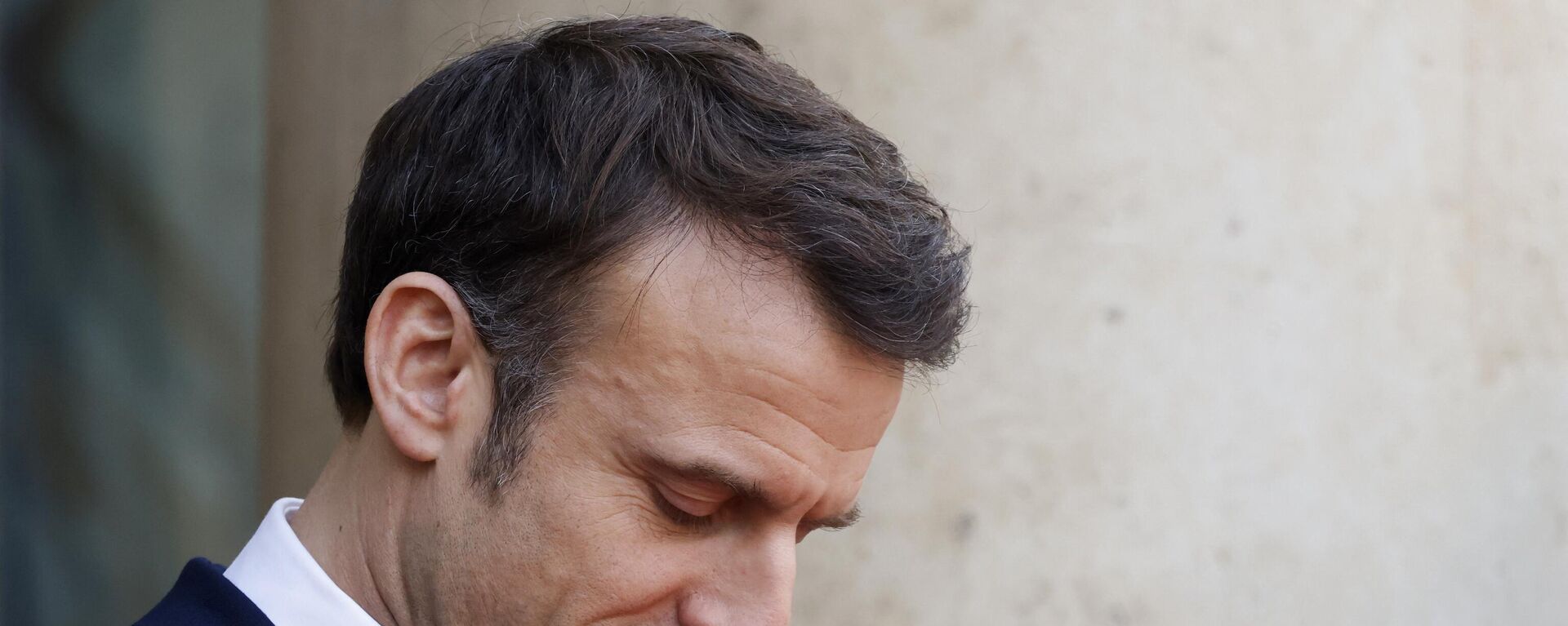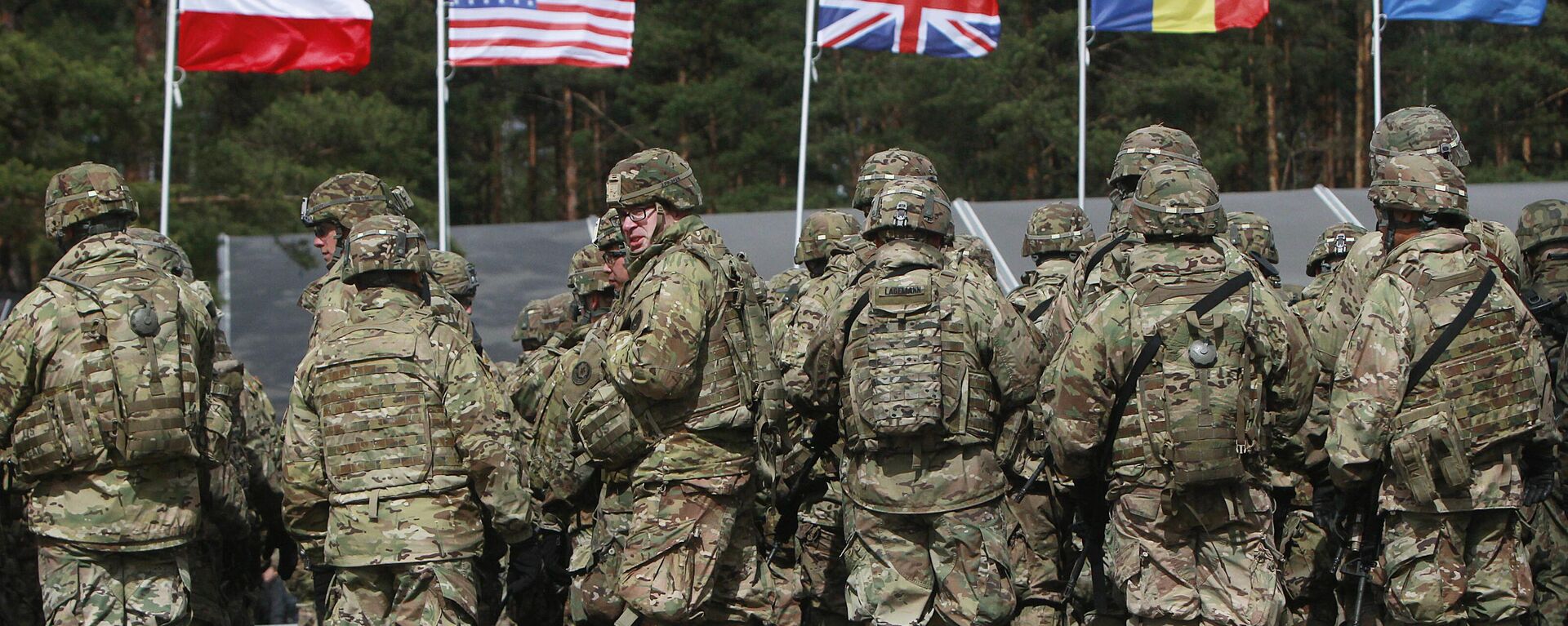https://sputnikglobe.com/20240307/macron-consults-on-ukraine-with-unrepentant-russophiles-sarkozy-and-le-pen-1117194908.html
Macron Consults on Ukraine With 'Unrepentant Russophiles' Sarkozy and Le Pen
Macron Consults on Ukraine With 'Unrepentant Russophiles' Sarkozy and Le Pen
Sputnik International
The French president met with his predecessors, Nicolas Sarkozy and Francois Hollande, in the Elysee palace to consult with them about the situation in Ukraine.
2024-03-07T18:43+0000
2024-03-07T18:43+0000
2024-03-07T18:43+0000
world
nicolas sarkozy
emmanuel macron
francois hollande
france
russia
nato
european union (eu)
ukraine
marine le pen
https://cdn1.img.sputnikglobe.com/img/07e6/09/12/1100933313_0:0:2536:1427_1920x0_80_0_0_bc6bd98990f6fc5d2f4c8662b0c70d41.jpg
French President Emmanuel Macron has met his predecessors Nicolas Sarkozy and Francois Hollande to discuss policy towards Ukraine.The meeting, which took place on Wednesday, is a part of a series of consultations, which will include meetings with party leaders and members of the expert community.While Francois Hollande (president from 2012-2017) is known for his hawkish position on Ukraine - it was under his watch that France openly supported the Maidan coup in 2014 and quietly sabotaged the Minsk agreements signed in 2015 - Sarkozy has assumed a contrary position.Sarkozy was in charge of the French Republic in 2007-2012. In his book and several interviews published a few months before yesterday’s meeting, Sarkozy openly supported neutrality for Ukraine and opposed EU and NATO memberships for Ukraine.After several hours of eye-to-eye consultations, Hollande talked to reporters saying that his advice to Macron was “to use the language of force with the head of the Kremlin, since this is the only language he understands.” Sarkozy was more discreet, “slipping out of palace away from the cameras,” the French daily Le Monde reported.But does it mean that the idea of a compromise and of Ukraine’s neutrality is dead or very weak among the Western public? Not so given that the hawkish stand on Ukraine is facing strong opposition. Macron could feel its strength a few days ago when he said that sending troops of NATO countries to the conflict in Ukraine “was not ruled out for him.” The suggestion provoked outcry not only in France but across all of the European Union.One can only hope that Sarkozy had an opportunity to present Macron with his arguments, which Sarkozy developed in his book of memoirs ‘The Times of Fights’ and recent interviews.In his interview to Le Figaro, Sarkozy said he was unrepentant that France (under his presidency) and Germany blocked NATO membership for Ukraine, proposed by the former US president George W. Bush at the NATO summit in Bucharest in 2008. Sarkozy also said in the same interview it was “an illusion” to expect that Ukraine could get Crimea back, which “had been populated and governed by the government of Russian Federation until 1954 and where the majority of population feels itself to be Russian.”Sarkozy is certainly not alone in this opinion.Foreign Policy, one of America’s most authoritative magazines on international affairs, published an article this week denying the main mantra of Ukraine’s Western allies – that Kiev should join NATO. The article is headlined “NATO Should Not Accept Ukraine – for Ukraine’s Sake,” with a thought-provoking lead following it: “The top five reasons why expanding the Western alliance would make Kiev even worse off.”Russian President Vladimir Putin has explained many times that the main reason for the start of the special military operation in February 2022 was Ukraine’s refusal to fulfill the principle of the country’s neutral status enshrined in the Declaration on Ukraine’s State Sovereignty adopted in 1990.This principle was later incorporated into the independent Ukraine’s Constitution, adopted in 1996, and was legally binding until February 2019. Then, after three years of the civil war in Ukraine, it was removed without due procedure by a special amendment.The amendment defined Ukraine’s foreign policy objective as “full membership of the North Atlantic Treaty Organization (NATO).” The amendment was introduced by the Ukrainian parliament (Rada) under pressure from the country’s nationalist President Petro Poroshenko. No referendum or any other form of popular vote on the issue was held in Ukraine.NATO membership for Ukraine “will only prolong the war”, the authors of the article in Foreign Policy conclude, and one could not agree more. “Neutrality may not be that bad for Ukraine” – that also hits the spot. And this is exactly what former President Sarkozy argues in his statements on Ukraine – that the country should be a “neutral bridge between East and West.”During his meetings with President Putin before the hostilities in Ukraine exacerbated on February 24, 2022, Macron also did not shy away from the idea of neutrality for Ukraine. He even used the word “Finlandization” during his visit to Moscow in February 2022 – much to the chagrin of the American media covering that meeting.That word, however, has disappeared from Macron’s vocabulary – and from most of the Western media – after the Ukrainian army declared its intention to start “offensives” aimed at cutting Crimea away from the rest of Russia in the end of 2022 – beginning of 2023. Now this word may be coming back.The reason is simple – the situation on the ground in Ukraine changed in Russia’s favor.Hopefully, Macron will get even more enlightened during his meetings with the two of the opposition figures – the leader of the “non-systemic” far-right National Rally party Marine Le Pen and the maverick founder of leftwing La France Insoumise (France That Did Not Submit) party Jean-Luc Melanchon.Both of them blasted his recent ponderings on sending NATO soldiers to Ukraine.
https://sputnikglobe.com/20240301/macrons-idea-to-send-nato-troops-to-ukraine-made-him-look-very-foolish--1117069472.html
https://sputnikglobe.com/20240307/nato-preparing-for-new-wars-drills-in-europe-increase-tensions---russian-security-council-1117188863.html
france
russia
ukraine
Sputnik International
feedback@sputniknews.com
+74956456601
MIA „Rosiya Segodnya“
2024
Dmitry Babich
https://cdn1.img.sputnikglobe.com/img/07e8/02/0e/1116778495_0:120:720:840_100x100_80_0_0_9bf47040bc46073fb920d272be7bc29d.jpg
Dmitry Babich
https://cdn1.img.sputnikglobe.com/img/07e8/02/0e/1116778495_0:120:720:840_100x100_80_0_0_9bf47040bc46073fb920d272be7bc29d.jpg
News
en_EN
Sputnik International
feedback@sputniknews.com
+74956456601
MIA „Rosiya Segodnya“
Sputnik International
feedback@sputniknews.com
+74956456601
MIA „Rosiya Segodnya“
Dmitry Babich
https://cdn1.img.sputnikglobe.com/img/07e8/02/0e/1116778495_0:120:720:840_100x100_80_0_0_9bf47040bc46073fb920d272be7bc29d.jpg
macron and sarkozy, macron and le pen, why macron wants to send troops to ilraine, will frace send troops to ukraine
macron and sarkozy, macron and le pen, why macron wants to send troops to ilraine, will frace send troops to ukraine
Macron Consults on Ukraine With 'Unrepentant Russophiles' Sarkozy and Le Pen
The French president also met with his predecessor Francois Hollande in the Elysee Palace.
French President Emmanuel Macron has met his predecessors Nicolas Sarkozy and Francois Hollande to discuss policy towards Ukraine.
The meeting, which took place on Wednesday, is a part of a series of consultations, which will include meetings with party leaders and members of the expert community.
While Francois Hollande (president from 2012-2017) is known for his hawkish position on Ukraine - it was under his watch that
France openly supported the Maidan coup in 2014 and quietly sabotaged the Minsk agreements signed in 2015 - Sarkozy has assumed a contrary position.
Sarkozy was in charge of the French Republic in 2007-2012. In his book and several interviews published a few months before yesterday’s meeting, Sarkozy openly supported neutrality for Ukraine and opposed EU and NATO memberships for Ukraine.
After several hours of eye-to-eye consultations, Hollande talked to reporters saying that his advice to Macron was “to use the language of force with the head of the Kremlin, since this is the only language he understands.” Sarkozy was more discreet, “slipping out of palace away from the cameras,” the French daily Le Monde reported.
But does it mean that the idea of a compromise and of Ukraine’s neutrality is dead or very weak among the Western public? Not so given that the hawkish stand on Ukraine is facing strong opposition. Macron could feel its strength a few days ago when he said that
sending troops of NATO countries to the conflict in Ukraine “was not ruled out for him.” The suggestion provoked outcry not only in France but across all of the European Union.
One can only hope that Sarkozy had an opportunity to present Macron with his arguments, which Sarkozy developed in his book of memoirs ‘The Times of Fights’ and recent interviews.
In his interview to Le Figaro, Sarkozy said he was
unrepentant that France (under his presidency) and Germany
blocked NATO membership for Ukraine, proposed by the former US president George W. Bush at the NATO summit in Bucharest in 2008. Sarkozy also said in the same interview it was “an illusion” to expect that Ukraine could get Crimea back, which “had been populated and governed by the government of Russian Federation until 1954 and where the majority of population feels itself to be Russian.”
Sarkozy is certainly not alone in this opinion.
Foreign Policy, one of America’s most authoritative magazines on international affairs, published an article this week denying the main mantra of Ukraine’s Western allies – that Kiev should join NATO. The article is headlined “NATO Should Not Accept Ukraine – for Ukraine’s Sake,” with a thought-provoking lead following it: “The top five reasons why expanding the Western alliance would make Kiev even worse off.”
Russian President Vladimir Putin has explained many times that the main reason for the start of the special military operation in February 2022 was Ukraine’s refusal to fulfill the principle of the country’s neutral status enshrined in the Declaration on Ukraine’s State Sovereignty adopted in 1990.
This principle was later incorporated into the independent Ukraine’s Constitution, adopted in 1996, and was legally binding until February 2019. Then, after three years of the civil war in Ukraine, it was removed without due procedure by a special amendment.
The amendment defined Ukraine’s foreign policy objective as “full membership of the North Atlantic Treaty Organization (NATO).” The amendment was introduced by the Ukrainian parliament (Rada) under pressure from the country’s nationalist President Petro Poroshenko. No referendum or any other form of popular vote on the issue was held in Ukraine.
NATO membership for Ukraine “will only prolong the war”, the authors of the article in Foreign Policy conclude, and one could not agree more. “Neutrality may not be that bad for Ukraine” – that also hits the spot. And this is exactly what former President Sarkozy argues in his statements on Ukraine – that the country should be a “neutral bridge between East and West.”
During his meetings with President Putin before the hostilities in Ukraine exacerbated on February 24, 2022, Macron also did not shy away from the idea of neutrality for Ukraine. He even used the word “Finlandization” during his visit to Moscow in February 2022 – much to the chagrin of the American media covering that meeting.
That word, however, has disappeared from Macron’s vocabulary – and from most of the Western media – after the Ukrainian army declared its intention to start “offensives” aimed at cutting Crimea away from the rest of Russia in the end of 2022 – beginning of 2023. Now this word may be coming back.
The reason is simple – the situation on the ground in Ukraine changed in Russia’s favor.
“The capture of Avdeyevka by Russian forces reinforced an increasingly somber mood among pro-Ukrainian politicians and commentators in the West,” wrote Paul Robinson, a veteran professor of Russian Studies at the University of Ottawa and the founder of the Irrussianality news and analysis site. “Talk of a Ukrainian victory has almost entirely disappeared… A lack of ammunition and a lack of infantry – that is pretty much the definition of the army that is losing.”
Hopefully, Macron will get even more enlightened during his meetings with the two of the opposition figures – the leader of the “non-systemic” far-right National Rally party Marine Le Pen and the maverick founder of leftwing La France Insoumise (France That Did Not Submit) party Jean-Luc Melanchon.
Both of them blasted his recent ponderings on sending NATO soldiers to Ukraine.








